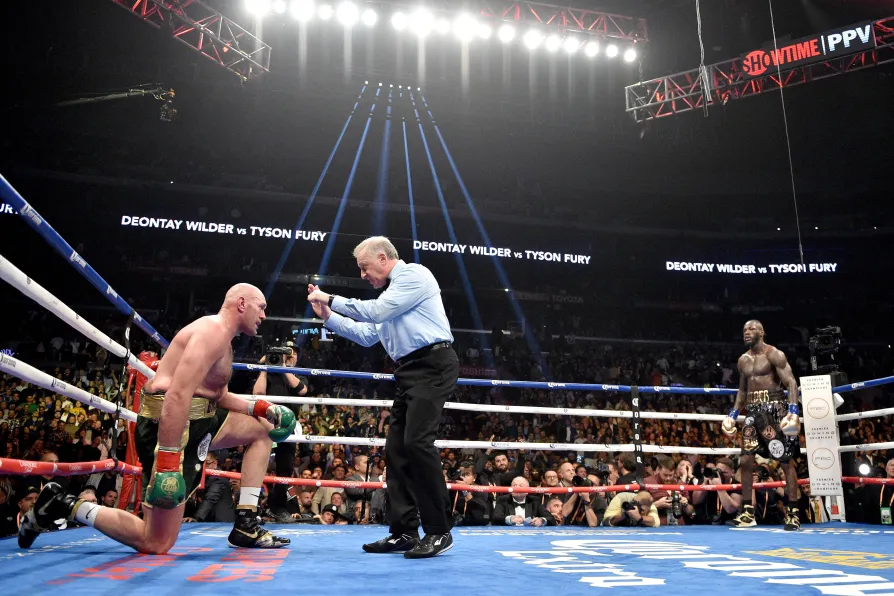
 Tyson Fury gets up off the canvas in his fight against Deontay Wilder
Tyson Fury gets up off the canvas in his fight against Deontay Wilder
JUST as Muhammad Ali had no business getting off the canvas after being nailed by a left hook from arch nemesis Joe Frazier in the last round of their “Fight of the Century” on March 8 1971 at Madison Square Garden in New York (the first instalment of what would be an epic trilogy), Tyson Fury had no business getting up after being nailed by a right hand-left hook from Deontay Wilder in the last round of their epic WBC title clash at the Staples Centre in Los Angeles on December 1 2018.
Though 47 years may separate these stunning demonstrations of will and courage in the ring, the unbridled drama, transcendent courage and beautiful brutality that both fights served up place them on the same page as powerful examples of boxing as (worn cliché, maybe, but what the hell) a metaphor for life.
In the hours and days immediately following Fury’s inexplicably sublime performance against Wilder, one that saw him befuddle, bamboozle and almost completely out-class the current WBC champion — earning the 30-year old 6’9” switch-hitting giant a draw that made a mockery of the sport — the enormity of what unfolded was of such magnitude it had yet to be fully digested.

JOHN WIGHT tells the riveting story of one of the most controversial fights in the history of boxing and how, ultimately, Ali and Liston were controlled by others













